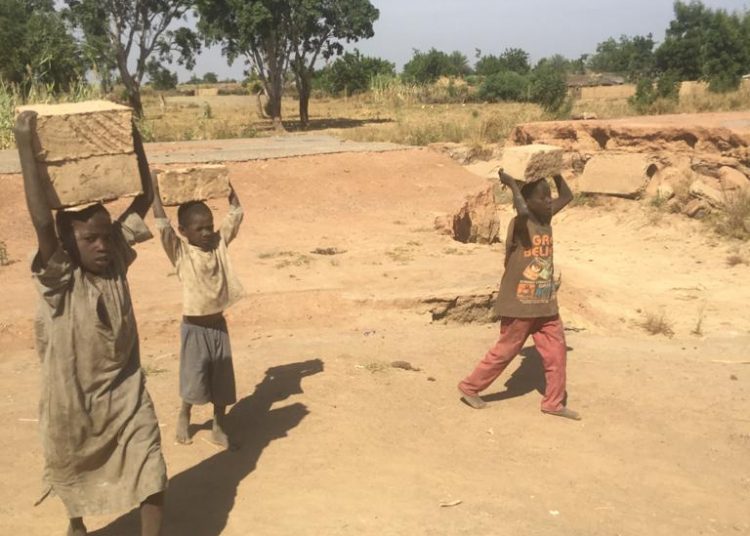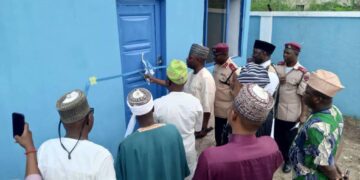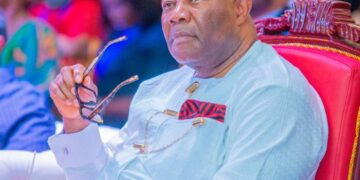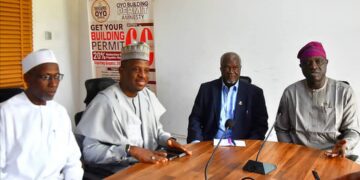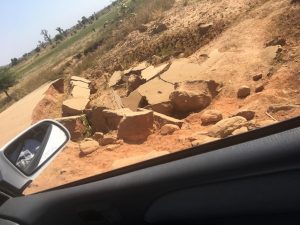 It was a long haul. A road travel from Abuja to Yola isn’t what you do everyday just for the fun of it. However, it was a pleasant opportunity to see, again, the beauty of Nigeria: her landscape and the people. It is a charming substitute for the lifeless azure of air travel. As a child, I had the privilege of being very familiar with the affectionate allure of the mangrove rainforest in the South of the country and the plain savannah of the North. It was a time when railways transportation was very effective in Nigeria and I cannot recall a fun time in my growing up years better than those days when our parents will prepare us (me and my siblings) for a train travel from Ibadan to Kano.
It was a long haul. A road travel from Abuja to Yola isn’t what you do everyday just for the fun of it. However, it was a pleasant opportunity to see, again, the beauty of Nigeria: her landscape and the people. It is a charming substitute for the lifeless azure of air travel. As a child, I had the privilege of being very familiar with the affectionate allure of the mangrove rainforest in the South of the country and the plain savannah of the North. It was a time when railways transportation was very effective in Nigeria and I cannot recall a fun time in my growing up years better than those days when our parents will prepare us (me and my siblings) for a train travel from Ibadan to Kano.
It was in those days when Nigeria was a beautiful country – a time when terrorism was haram in our land and it was unimaginable to entertain fears of its manifestations as we do today.
But things are pretty much different today; and so bad that telling your loved ones that you are traveling by road from Abuja to Yola is easily interpreted as a derring-do. And, expectedly, returning the country to those days of peace and unity (the very sacrament of the nation-state) has been a major campaign issue for political office seekers since the turn of the new millennium.
A twelve hour journey on the highway in Nigeria is another meaning of what a stressful day could be. The roads are bad as usual and the security search points after almost every five kilometer of the travel makes it all the more daunting. But then, the sights and sound of the North is a warming reward. I dare say that no other part of this country is as beautiful as the Northern landscape. The tropical grassland of the savannah hemmed by the sprawling mountains that form an interlocking pattern from the Plateau of Nigeria’s North-central all along to the plain desert of the North-East of the country and into the Republic of Cameroon is one of the exotic beauty of the planet.
But apart from the splendour of its natural beauty, life is pretty more hard for the Northerner – perhaps more so since the past three years. Farmers till the fields; menials sift the guinea corn from its trunk; motorists and hawkers ply their trades on the highway. It is a fact check that there hasn’t been any improvement in the lifestyle of the Nigerian, nay Northerner! If anything, it is a story of next level of hardship and frustration.
For the ordinary people in the North, not much has changed and infrastructures are broken from public schools to roads network. All through the stretch of the trip from Jos to Bauchi; Gombe to Yola there is no single presence of road construction. In fact in some portion between Bauchi and Gombe, the roads are completely broken and we had to make a detour into the desert for a thoroughfare. But what is more disheartening and scary is that safe for in the state capitals, I could not see any school in virtually all the villages that we passed through. All that you see in the villages are the sorry images of child labour. I caught some boys in the average age of 8 years old making mortar bricks somewhere around Alheri – a sleepy village bordering Bauchi and Gombe states. Instead of children being in classrooms, boys and girls of elementary school age are seen either tilling the fields with their parents or running after moving vehicles of commuters as they make frantic efforts to survive in the risky business of highway hawking and many more others begging for alms.
Agriculture is still very much agrarian. The major crop for cultivation is the guinea corn and I could suspect this time of the year is the harvesting season of the crop. While harvesting was taking place along all the farming fields we traveled through, the middle men are busy buying off produce from the fields and transporting the produce to a common collection center from where they will be transported to the bigger city centers of Kano, Enugu, Lagos and the likes. It was fascinating to have a brief encounter with the supply chain of the food that we consume in Nigeria. It was also a moment to reflect on how the food we dish in our luxury dining rooms are planted by farmers whose children do not go to school, but are busy in the fields to plant the crops that our educated children in the city will consume. If consciously or otherwise we deny the girl child education, the society will give birth to a generation of human beings who from day one of their birth will be national security risks!
Like every other Nigerian, the Northerner is very hard working and wants the country to work for her citizens. It needs a political leadership with a plan to build the people and infrastructure; a leadership that is ready to pay a premium to educate young people knowing full well that not getting an education is actually more expensive.
For sure, the North has a very rich history and that much was reflected in the colourful turbarning ceremony of Atiku Abubakar, former Vice President of Nigeria as the 7th Waziri of the Adamawa Emirate Council.
A rich history isn’t all what the North needs; it also needs a bright future. Fortunately, the two leading candidates for the presidential election next year are both from the North and it is therefore incumbent on leaders and opinion makers in the North to support its best – one that has a clear vision for the future, one who is able to also build the broken bridge of unity amongst other geo-political zones and primordial identities in Nigeria.
Sanni, a media practitioner wrote from Abuja following a road trip from Abuja to Yola to witness the turbaning ceremony of Atiku Abubakar, Presidential candidate of PDP as 7th Waziri of Adamawa.


